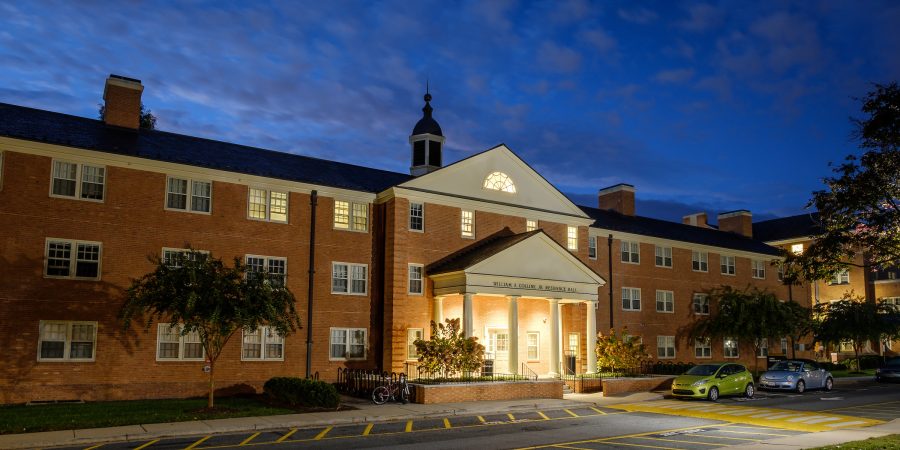Residence Life makes changes to help RAs
A committee formed after an RA protest last spring has achieved tangible results
September 2, 2021
Residence Life and Housing (RL&H) has made six major changes on behalf of resident advisers (RAs) after many of them voiced their concerns during the COVID-19 surge in the spring 2021 semester.
According to an email sent to the Old Gold & Black from RL&H Dean Matt Clifford and Director of Residence Life Stephanie Carter, the six major changes include: “a $600 stipend increase, residential parking for sophomore RAs, community policing partners for residential communities, a communication plan prioritizing getting information to RAs in a timely fashion, increased staff support for RAs responding to critical incidents and a revived Resident Advisor Leadership Council (RALC) with representatives from all communities.”
RL&H has already seen some of these changes in action.
“When the University announced protocols for masking in residence halls, we had an opportunity to get that information to RAs in advance and clarify their role in the process,” the email stated.
RAs were able to see some of these changes in action when they arrived on campus for training in early August. They appreciate the new incidence response reforms because they provide greater support for RAs dealing with sensitive events.
“During training, RL&H introduced a new structure for incident response that gave RAs greater support. It allows RAs to contact RL&H staff on call for mental and emotional support directly after an incident,” Megan Gerber, a senior RA in Collins, said.
“I am super hopeful for this,” Gerber continued. “It doesn’t happen often, but every now and then RAs deal with incidents that are especially heavy or triggering.” “Knowing that there is someone I can talk to that is from our department and knows what we’re dealing with is comforting.”
Gerber mentioned that, in her view, RL&H has a murky track record when it comes to communication, but is excited about what is to come about in regards to the new changes.
“The steps they have taken are positive ones, but they do not necessarily overshadow past issues,” Gerber said. “It’s going to take time to establish trust. Overall, I think RL&H is trying to improve. Listening to RAs will be essential for keeping and continuing this process.”
Keira Perry, a junior RA in Babcock, is particularly impressed with the RALC reforms.
“RA leadership is the main reason we have a lot of these changes,” Perry said. “RALC gives RAs from diverse types of communities a voice, and RL&H has done well with incorporating those voices into change.”
“The RALC allows RAs to have a direct connection to administration in order to make changes” she continued.
Perry also mentioned her appreciation for the stipend increase and sophomore RA parking access.
However, Perry still sees some shortcomings despite the recent reforms. One of these is a lack of timeliness.
“Previews that we get for important emails do not really come in advance,” she said. “At most, we get the preview an hour before the rest of the student body. With important information, I do not feel like this is a good amount of time to process it, ask questions, express concerns and prepare to answer questions of residents and support them.”
With current events surrounding the safety of the community, Perry would also appreciate more opportunities for RAs to voice their concerns about the administration.
“I would like to see a better space for RAs to voice their concerns with how the administration is handling very important situations that impact the safety of the community,” Perry said.
“I think it is important for RAs to have a voice there as well because we are the ones living in communities and offering support,” she continued. “If RAs don’t feel safe, it is extremely difficult to make our residents feel safe too.”
Clifford responded to existing concerns that RAs have.
“This summer we developed a strategy for communicating information and decisions to RAs, which helps us build on clarity, transparency and trust,” Clifford said. “We have successfully elevated the need for RAs to receive some information from the University in advance and will continue to work with our communication colleagues to get those messages delivered as soon after they are finalized as we can.”
“At times, we’ve created space for staff dialogue and feedback,” Clifford continued. “This remains part of our communication strategy and we will continue to look for those opportunities.”





















